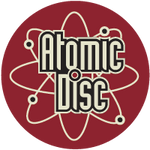Jason:
Hi everybody. This is Jason Carter with Atomic Disc. And once again, I'd like to thank you for listening to this podcast. I am really excited for our guest on this episode, Mr. Todd Demma. He is a man that wears many hats and he wears them all very well. Todd is a respected tour manager and performer as both a drummer and bass player and God knows what else he plays. I'm sure a lot. Todd is currently on tour with his Los Angeles based band Trope. He is a friend and colleague and I've had the pleasure of knowing him for a little over 10 years now. Todd, how are you?
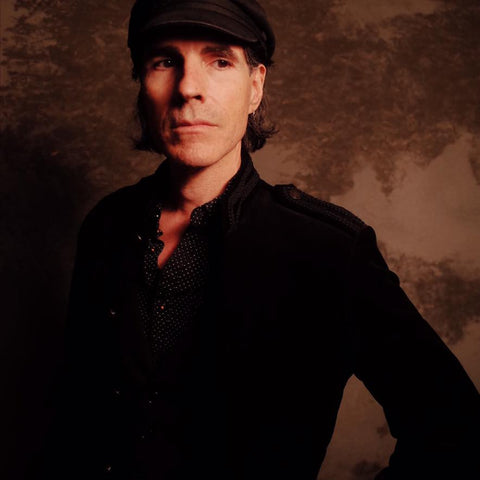
I'm doing well, Jason. Thanks for having me. How are you?
Jason:
I'm doing great. It's really great to hear your voice. It's been a long time.
Todd:
It has. Very long.
Jason:
Yeah. So the last time we saw each other was... I believe it was at a Cake show in Portland.
Todd:
Yeah. You know, we might've even seen each other after that. I think we ran into each other in Chicago when I was going through with Lisa Marie Presley. Does that make sense?
Jason:
Oh, that's right. My Gosh. Time flies. And then we've worked together a lot. We worked back in the Frank Black / Black Francis days. We did a lot of touring together.
Todd:
Indeed. Indeed. That was exciting. We did the US, we did Europe, we did Australia.
Jason:
Yeah, it was great. You have just been super busy. I see your schedule is incredible. You've worked with so many great people. I would love for you just to talk about some of the hats that you wear and what you do and who you've worked with.

Okay. I do wear several hats as you mentioned. One of the main things I do that I get the most pleasure from is being a musician myself, playing drums, bass, guitar, and basically any instrument that's around me. But my quote, unquote "day job", is in the touring world. I've been anything from tour manager to drum tech, guitar tech, doing merch, driving, and sometimes all at the same time. Sometimes any combination thereof. Artists I've worked with; Cake, Lisa Marie Presley, Frank Black, Dead Can Dance, Steel Pulse, CeeLo Green, Neon Trees. Currently, right now I'm on the road working with the Cult.
Jason:
Nice.
Todd:
Yeah. So, needless to say, I'm on the road quite a bit. And as I like to say; if I'm not on stage, I'm putting somebody on stage.
Jason:
One person you left out that my daughter always reminds me of is Avril Lavigne, didn't you do some work with her in Asia?
Todd:
Oh, that's funny. I thought I did say that. Yes, I did a number of tours with her. A bit of US, we did a lot of touring in Asia and South America. That was touring on a really big scale because she's a huge name. She sold something like over 30 million records, especially in places like China and Japan. Over there she has an incredibly huge fan base.
Jason:
So this call, I would love to just talk about music and playing drums and how glamorous it is to be on the road as a musician. Cough, cough... In this call, we will talk a little bit about that, but we primarily want to try to provide some useful information to our client base at Atomic Disc. Most of our clients are independent musicians or bands. They book their own tours, they book their own shows, they make their own merch, they sell their own merch, they drive their own cars and we're constantly trying to provide them with useful information from professionals such as yourself that do it for a living at multiple levels. I know you've managed tours from tiny to humongous and we'd love to pick your brain and get some information and some ideas, some advice from you on how our listeners might be able to take your information and apply it to their own careers.
Todd:
Sure thing.
Jason:
Everybody's curious, what does a tour manager do and what is tour life like on a grand scale. Let's use Avril Lavigne for example. You just mentioned her, and I know her tours are quite big. So what would your role be as a tour manager? What does the tour manager do exactly?

Okay. Sort of a couple of questions there. First, I'll answer the tour manager part and then I'll answer what it's like on a grand scale. So, a tour manager is going to essentially steer the ship, soup to nuts. They do everything from advancing, and we'll get into that a little later, about exactly what advancing is, but, doing the advancing for the upcoming shows to coordinating transportation. It could be renting the tour buses or booking flights or just transportation from the venue to the hotel. They oversee accounting, they make sure that catering riders are met and fulfilled, and they handle logistics, making sure that musicians have the right equipment. Like if they're flying in for just a show, sometimes you'd have to rent a local backline. So they oversee that. And then also sometimes tour managers are driving, depending on what size tour and then also just being a therapist, which is part joking part not, they really are. At the end of the day, you're in this little bubble. It's the band and whatever crew who you're surrounded by. There's that camaraderie. But there's also that perhaps, need for therapists... I don't want to say babysitting, but there's definitely that too.
As far as touring on a grand scale, if it's somebody that's doing amphitheaters or arenas, you have the luxury of having a lot more personnel at your disposal where people are not doubling up on duty. So you have a dedicated tour manager who looks after just the A party and that's maybe just the band, or sometimes even just the principal members if it, like an Avril Lavigne or an Adam Lambert. Sometimes we'll have managers who almost exclusively look over that person's sphere. And then the band members will be looked after by an assistant tour manager. And then you have a production manager that sort of looks after the crew. So that's really the thing, a lot more is available to you on those grander scale tours where you have more people to spread the work amongst. And also you're playing bigger venues. So things like having a bigger production, bigger lighting, bigger PA and sound, a bigger loading dock. You have multiple tour buses to coordinate, sometimes you have one 18 wheelers, sometimes you have several, and you're carrying not only your backline, but you're carrying a PA, you're carrying a whole lighting rig, a video wall. Sometimes it could be a crew of anywhere from 25 to 150. Or if it's like U2, I've known people on those tours, it's upwards of about 300 people. The crews are so big they'll actually have an A and a B crew where one crew is setting up for a show in Boston while the previous night's show in New York is being broken down. And then they just sort of leapfrog. Not many people are at that level. That's the apex, you know, the top.
Jason:
Yeah. And It's a well-oiled machine, isn't it? Everything has to fall into place just perfectly.
Todd:
Indeed. But that doesn't mean things don't fall through the cracks. You know, it's funny enough, this past month with the Cult, we've been doing a number of these festivals like Rocklahoma in North Carolina and another one in Florida and things you can't predict is these gigantic storms coming through, where the shows get canceled halfway through the day. And we were watching Tool's video wall just being blown in the wind, like a sail, smashing against the PA. So, you know, all the best planning in the world can just go right out the window if there's either a storm or an airline strike or there's an earthquake. One time in Buenos Aires with Avril Lavigne, we were all stranded for an extra day and a half because a volcano eruption, all flights were grounded for the day.
Jason:
Wow. I remember when we were on tour together, maybe actually you weren't on that tour. Or were you on the European tour? In '07 at the Hurricane Festival with a tornado?
Todd:
No, I did when you went back in February of '08.
Jason:
Yeah. Okay. Well, anyway, we were literally watching a tornado happening from the stage, which took up multiple tents and people running for their lives. And unfortunately, somebody actually got fatally injured from that.
Todd:
I think I remember which one you're talking about, I think I remember that.
Jason:
Everybody just kept on rocking. They didn't want to pull the plug... crazy...
Todd:
They have a different mentality over in Europe though, especially in England. Like Glastonbury and all those festivals, nothing can keep them away, with the exception of maybe a tornado or a hurricane. But they'll sit through any amount of rain and hail and mud and sleet.
Jason:
So you mentioned advancing earlier as a tour manager, that's a term that people have asked me in the past. What does advancing mean? What's that term?
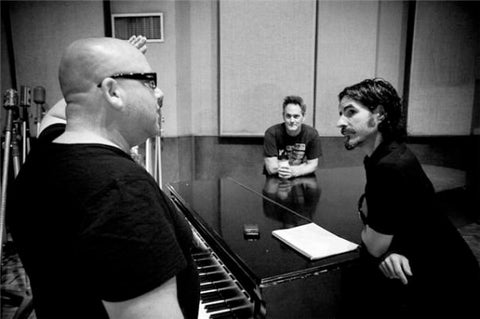
It's a very key component actually booking a show. Once a show is in place, you do advancing. So simply put, that means you are calling in advance of your show and you're just going over the details with the production person there. You're going to go over the necessities of the day because you need to know what they have. You're gonna want to know; do they have one dressing room or five dressing rooms. What they have for power, how big is the stage? Where do you load in... What time? What time do you load in? What time is soundcheck? Make sure that you have the correct times, like for instance, doors at six, first band at seven, next band's at eight, so you advertise correctly.
Because sometimes, even on big scales, there'll be discrepancies. Things can get lost in translation. So you just go over all the nuts and bolts like that. And the same thing for the venue. They want to know what you're bringing in. Is it an acoustic duo or are you coming in with a 60s band and you have SVT stacks and two Marshall stacks and two drummers. Do they have the right amount of power for you? Do they take a percentage of merchandise? Some venues just let you sell them and you keep 100% and some venues they'll take 20% for soft goods, like T-shirts and maybe only 10% or 5% for CDs or any sort of configuration like that. So those are things you want to know. So when you walk in, you're prepared for what they have for you, and they're prepared for what you're coming in expecting.
Jason:
You have to be a pretty organized guy to do this. Right? I mean, you can't be the kind of guy who's writing stuff down on a napkin and stuffing it in your back pocket and "Oh, that was for that club and this club..." Would you say drums are kind of your main thing? From an instrument standpoint.
Todd:
Sure, that's the first thing I started as a youngster.
Jason:
See, drummers are really great at wearing multiple hats. I've noticed that. It's quite impressive because I've seen you work and having worked with you, you've taken on a lot of roles on some of the smaller tours. Like you mentioned earlier, I've seen you drive, I've seen you run merge. I've seen you manage a tour. I've seen you play percussion from the soundboard, right? It's a lot to do, to keep together, to keep organized, and you have to keep the band organized and you have to keep them abreast of what's happening.
So, with all this in mind, if you were to take what you've talked about, encapsulate it and shrink it down on the smallest level. XYZ Band - never toured before. They're ready to try to get out and get known. Let's just say they're going to do a small west coast tour from Seattle to LA. It's only the band. Maybe they've got one friend who's gonna go with them. Do they have to think in terms of, okay, we need to delegate roles to each member? We need to be organized. We need to advance. We need to do our own booking. There's a lot of coordination involved. What advice would you give to the artists or bands listening right now? That has no idea, never done this. They want to book a tour, they want to try to come out, break even. Maybe lose a little bit, try to be sustainable somehow. Where would you start giving them advice?
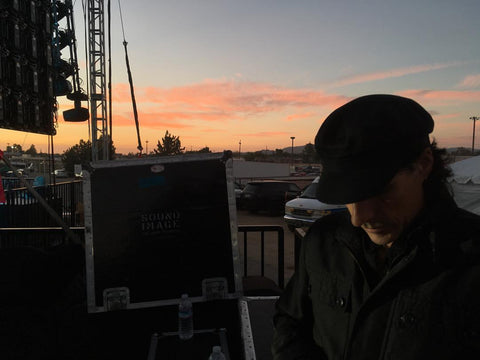
Yeah, it can certainly be daunting. So I would suggest everybody needs to pitch in. I have certainly been in my own bands where as you said, I am wearing a lot of hats. It can be daunting to. You're thinking; oh I got to book this show, oh I gotta try to get press, oh I gotta coordinate doing the merge. So definitely establish where each member has their strengths. Like maybe somebody has a great demeanor and maybe some contacts for bookings. So maybe that person would do the emailing and calling venues. Seems like everything's emailing these days. I remember back in the day you'd have to send out a package with a cassette and like a 20 page bio and wait three weeks to get a response from that venue. But you don't have to do that anymore. But I digress.
So one person does the booking, okay, you're in charge of booking. Maybe you're great at coordinating the merch, so you oversee getting the merch ordered. Who's great with logistics? Maybe that person can call ahead do the advancing and then make a little spreadsheet. Who's gonna take care of renting the van and sorting out a deal for that. That's what I would suggest. Split up the work. So one person isn't bogged down with all that and then freaking out like, "oh geez, I got to do all this!"
Jason:
Yeah. And it sounds like maybe a budget would be important.
Todd:
Oh yeah, it's apparently so obvious I forgot to mention it right now. You got to figure out what it's going to cost you to get out of town. Like if you're thinking of Seattle to LA. I'm assuming most people have day jobs, so first figure out how much time you can take off because not only are you driving to other places, but then you have to get back. Say can you only take a week off? Then you can really only do a few shows, maybe like Portland, San Fran, and then San Fran to LA. But if you can get two weeks off, then you can start hitting a bunch of other places like, squeeze in Eugene, maybe San Luis Obispo and maybe some other places. Maybe they get all the way down to San Diego.
You'll have to figure out how much the van rental is going to be. They range anywhere from a hundred and so dollars a day to a couple of hundred, even $250, $300 if you were to go with something fancier, like a Sprinter van from Bandago. Which is a great resource to look into, by the way. You're budgeting that, you're budgeting the gas, then you're budgeting, where you'll be sleeping. If you have friends everywhere along the way, then great, maybe you can just do the couch surfing. If you are not into that, then are we getting one hotel room and everybody's crashing? Or are you the type that insists on having multiple rooms. So you add another couple hundred dollars each day, then you've got to eat along the way, so you've got to add in that.
And then also you have to factor in printing any merchandise. You're going to need to be selling merchandise along the way. So you're going to shovel out $500 to $1000 or whatever, if you're gonna have multiple styles of T-shirts and, CDs and so forth. And vinyl, a lot of people are doing vinyl now, so all of those add up. Maybe you started out thinking it would be like a few hundred dollars, but then when you start factoring it all in, then the reality sets in of exactly how much it's gonna cost to do it. Those are definitely things that need to be factored in.
Jason:
Are you finding that more and more markets are only booking bands based off of pay to play type models such as, you know, pre-sale? Yes, you can play the Whiskey A Go Go, but you need to purchase 50 tickets. You're on your own, you sell them, great. If not, we still get our money.
Todd:
I don't necessarily see that so much. But I'm not gonna say it doesn't exist. I'm just going to say I haven't experienced that too much. But I have seen instances where they want to know, or wanting some sort of guarantee that you can at least bring like 20 people in. And a lot of times you can get a show booked, but it's going to be for no money. You'll get a percentage of the door after 20 people are paid or 50 people are paid. So that's safeguards them, you'll get a show, but you're not guaranteed any money. But I haven't seen too much of you having to buy 20 tickets from the club then you have to sell them to play. But I'm sure it exists some places.
Jason:
So to bands just starting out who aren't known in any markets, would you suggest they take whatever shows that they can get at venues that they've been looking at that might be appropriate for them and just repeat over and over and over to try to build a following? I'm opening a new topic here. I'm taking Todd Demma back to his early days when he had his first band that was unknown, right? And you were in the position of being the booker and you're like, darn it, we want to go on a tour, but we're not known. So we need to come up with a strategy here. I'm not sure how much booking experience you've had. I know you've had a lot of bands. Did you ever do your own booking for your own bands?
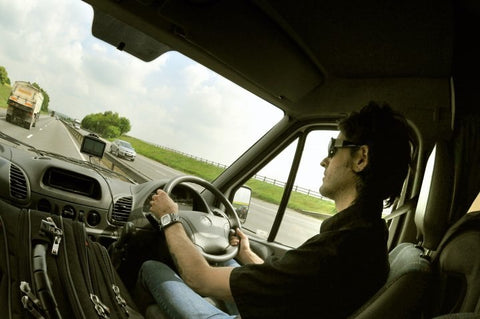
Yeah, absolutely. Back in the days in Boston, when I was playing with the band, Mistle Thrush. I did a lot of the booking and I would cold call places in like Columbus, Ohio. We got played on a few stations in Ohio, so we'd call and ask for a booking over there and then try to book another show or two along the way so we could make it out there. It's good and it's bad, you know? Because you get the excitement and the thrill of; "We're hitting the road, we're renting a van and we're going to go play new places and potentially get exposed to new people." But then the only problem is if you're unknown, you're really not playing to a lot of people, so that can kind of ding your psyche. Then it's just like, ah, Geez, I just spent x amount of money on a van and slept in the back of the van, travelled eight hours to play to 10 people and the bartender, like just kind of sucks. And that's when the reality of touring as an indie band starts to sink in.
Jason:
Yeah, it's a catch 22. I mean with social media now, at least you can try to build a little bit of a following in markets ahead of time before you go and hopefully get some of those folks out at a show that you've made contact with.
Todd:
Yeah, and that's a great thing. Back in the day, in the 90s, I remember Musician Magazine would do a yearly, or maybe it was twice a year, but they would do an independent booking issue where it just had this whole directory of booking agents and club names from all over the countries. So you could book your own tour. And I used to live by that thing and I'd be calling and sending packages and everything like that.
But what's great is nowadays you could just totally email booking agent. You'd go to the website and right there is the says, for booking, here's the email address and within a matter of minutes someone can see your email, go to your Facebook page and see a video of your guys' band. They can see these guys are kind of stoner rock or this is kind of like the Fugazzi band and they might work on Blah Blah. So it's really expedited. Now., we expedited the process, it just totally opens up the world for much faster and easier consumption.
Jason:
So do you mind me asking you a couple questions about your current band Trope?
Todd:
Oh sure. Go ahead.
Jason:
Great. Cause maybe we can get a little bit of insight on how you guys have gotten to where you're at. So you joined the band, it's been a couple of years now or just a year?
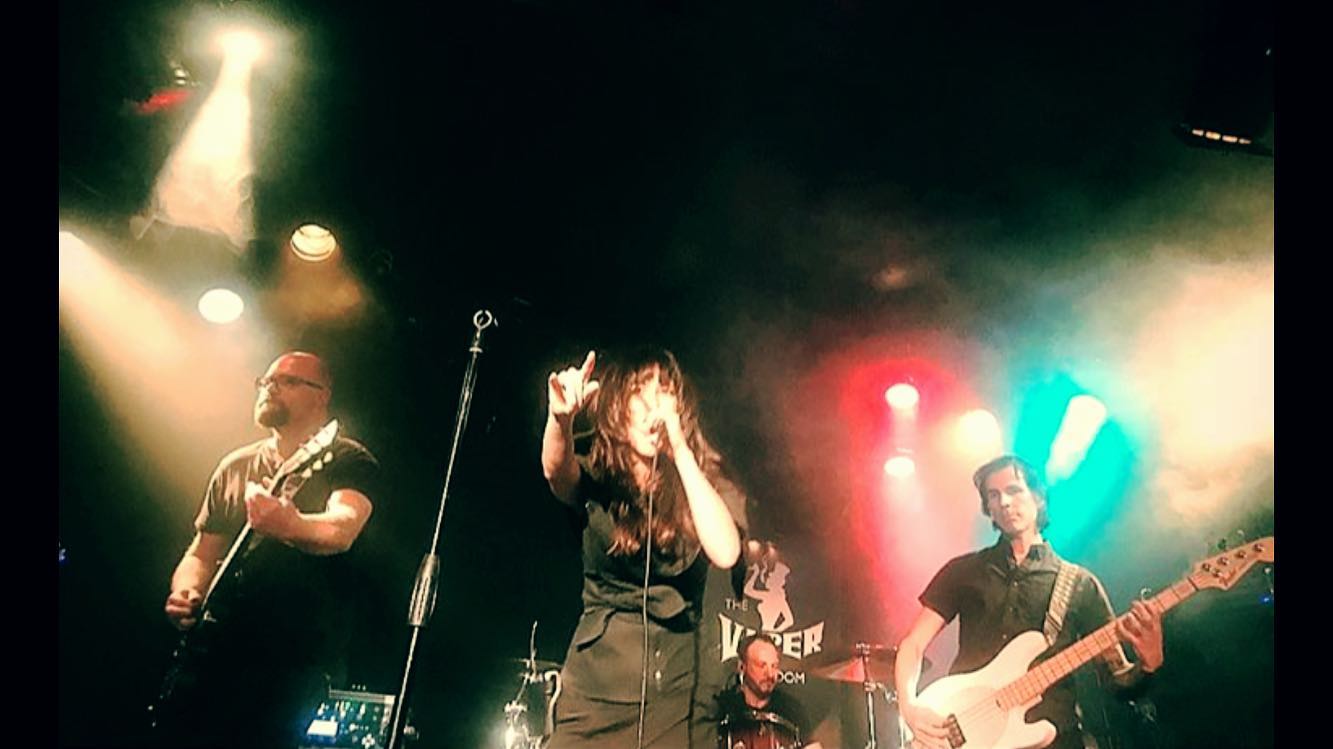
Actually just going on a year now and I'll tell you that came about in an interesting way. They are managed by a gentleman named Paul Spriggs who tour managed the Cult briefly while I was working with them. So when Paul was managing Trope and they were in need of a drummer last year because they were based in Vancouver, but going to be moving to LA, Paul contacted me; "I remember working with you for the Cult and I remember you being a great drummer, would you be interested in this?" And I was like "Oh, okay." So they sent me this stuff and I learned a bunch of songs and sent them a few videos of me playing along to the songs and they're like, okay, cool, great. And then I didn't hear anything for months and I was like "Oh, all right. I guess that went away."
And then several months later, over the summer then they contacted me again saying, hey, you know what? We are still moving to LA, but turns out or current drummer is gonna b staying, but Paul mentioned you also play bass. Are you interested in playing bass? So then I had to go back and learn all this stuff on bass, to which I said like, all right, if you call back to have me learn it on another instrument I'm over it. So anyway, I did that and then they did, in fact, move to LA in about September last year and we've been playing since. But it was just funny, the whole thing of first being seen as a tech, but also known as a player, which is funny in that the person that I am working for right now, John Tempesta, drummer of the Cult, he himself many years ago, was a drum tech for Charlie Benante from Anthrax. And then some people saw him. It was just like, "Whoa dude, that tech is really awesome!" And then John went on to play with bands like Exodus and Testament and the rest is history for him. And by the way, a similar thing I believe, Noel Gallagher was a tour manager for Happy Mondays or something. So there's a lot of people out there in the biz who've been on both sides of the coin, been a tech and then also made the crossover to the stage. Did I answer your question or did I get off?
Jason:
Yeah, that's good. That's good. You've shared some insight. A lot of people always wonder how do you get in the business? How do you become a drummer, a bass player or a guitar player for a famous band? How do you get on a tour? It's that old saying it's "who you know," sometimes that's the case. It's maybe just because you've met somebody in passing and they remembered you and thought you did a good job and it's that known familiarity. And then you get the call and then, once you get that call, you might get another call. And once you're in that circle, you try to stay in the loop and work it. It's not like American idol where you go to an open audition. Well, I guess there are open auditions, right? There used to be open auditions for bands. I used to hear about that. I have friends who have auditioned for Ozzy and other bands that had open auditions.
Todd:
I've gone to a bunch myself actually. Yeah.
Jason:
But you're living in Salina, Kansas or somewhere else in the middle of nowhere, you don't really get these leads on these big auditions. So somehow you've gotta be in the loop. So your band Trope, you've got a little buzz happening. You're moving up the ranks. What's the strategy of the band? How are you guys promoting yourself? How are you able to tour, what's the next step if you're looking one, two, three years down the road, where do you see yourself at and how do you guys expect to get there?
Todd:
Well, first of all, this is all just coalescing as we speak right now. So maybe I might have a better answer for you in six months. But I will say I kinda came into a somewhat established situation in that they already had the album recorded. They worked with the engineer Mike Fraser and another guy David Bottrill in Vancouver. They've worked with artists like AC/DC and the Cult and Peter Gabriel and stuff like that.
So the two principals, Diana, the singer and Dave, the guitarist they've already had the album recorded and then they had Paul, the manager come on. They already had a product that they've been able to shop. And then it was Dave who hooked up with a label called Golden Robot Records. They're based out of Australia, but also I believe have offices in LA and New York. So in just a matter of just a few months ago, they agreed to sign the band and that helped to be able to get on the King's X tour, which is going to be coming up in September. Then the record's going to be coming out in September as well. So it's like right now things are just starting to fall into place. But again, I was lucky enough that they've kind of done that bit of the groundwork already by just having things already in place with the recording and getting the label.
Jason:
And you guys have a manager who's making a lot of this happen probably pitching and being your advocate.
Todd:
Yes and no. Well, no, actually I think this might get to the point of why we're having this interview. It was actually Diana and Dave, just sort of hustling and just reaching out to all sorts of different labels and people. I think it was actually, guitarist, Dave that was the one that actually made the breakthrough with the record label and got that. It was his persistence that did that, and that's not to undercut what Paul manager or other people were doing, but I just think that connection ended up coming through him is important for the listeners.
Jason:
Sure. So XYZ band, they can just hop in their car, drive down to capitol records, knock on the door and leave a demo with them or are those days over, or are those days back?
Todd:
No, they're not back, nor have they ever existed. It's one of those things. They all, especially major labels, don't accept unsolicited materials. But here's the thing, you don't need the Capitol Records or the Atlantic Records. At least not in the beginning, because they're not signing baby bands. They only want to sign a band that's sold 100,000 copies of their own stuff on their own, and have like half a million Facebook friends and then they'll look at you because the industry is a big, scary place.
You're better off just doing it on your own, which is also the current problem that "Who is paying for music these days?" which is a whole other topic. But you're just better off trying to record yourself. Just put it out, just call your own label Bedroom Records or whatever and then just release it. That's just the thing, just get it out there instead of waiting for a record label or, thinking that you need to be on a label because then you'll be taken seriously. You're better off putting the product out there and making it available because you can. There's so many ways to do that, now. You've got Facebook, you've got Bandcamp, and Soundcloud. You can do it any number of ways just through social media and online marketing. You can point people to your music. Before you needed a label to do that, but now you don't.
Jason:
Sure. Well, that's good we're talking about this because I can remind everybody listening to listen to our first podcast, which was with an artist that I'm actually working with, been working with him for several years. His name is Enkay47, and he has successfully quit his day job. He's making a good living just off royalties, releasing everything on his own. Smart kid. And it's a numbers game. He can sign with several labels right now that have been courting him, but he's thinking "Why? My numbers are good. I'm collecting my royalties. Why do I want to give a piece of that to them?" So check that call out. What Todd just talked about, we spoke about in the first podcast and there's a lot of really great information about how to achieve a lot of success on your own without any labels support whatsoever.
+ Podcast: Secrets for Spotify Success
So gosh, you've given us a lot of interesting information. What I like to just touch on real quick is because you've had such a vast experience as a musician, as a tour manager and the such, you have seen small merch tables at small clubs and large merch tables that large venues. We know a considerable amount about merchandise because we manufacture merchandise and our customer base is pretty broad. Interesting enough. CDs are still the number one choice for our clients. And the feedback we've gotten is because they're quick to make, they're inexpensive and it fills that void of creating a hard, tangible product that people will buy to support the artist. From your experience at merch tables, what items are hot, what items are not? How important is merchandise to a small band?
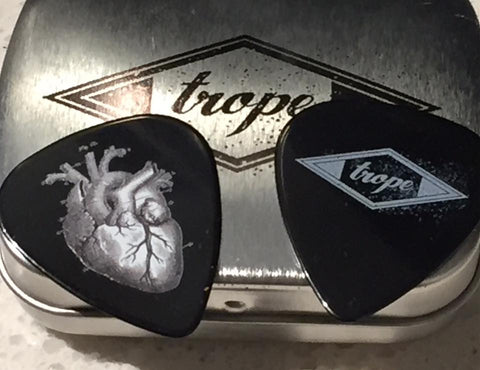
Well, merchandise to a small band is absolutely paramount. I mean, that's what you're going to be a needing, not only to obviously get the word out, so people can show their friends like, "Hey, listen to this band or look at this shirt." But chances are if you're a small indie band, you're not going to be making much money. At a club maybe sometimes as low as $50 for the night or maybe a few hundred from the door, but you might kill it at the merch table or you might get a great opening slot for somebody who was going to pay you peanuts. But all of a sudden a hundred people are gonna rush to the merch table. So the merchandise is super, super important. Obviously, shirts are very great. Just do your research, see who your demographic is. Are you a death metal band? Design for your audience or whatever your demographic is. I could list any number of suggestions, but honestly, shirts are key. Vinyl is super huge right now, has been making a huge comeback for a number of years now. The fidelity is great. It's a little special to have vinyl and makes it a little more of an experience. And again, at the genre you're in, some genres are more into buying vinyl, some genres are into buying, CDs. It was interesting with a previous band of mine Mere Mortals, from LA. When we toured Japan, I was thinking they're all gonna be into iTunes and mp3s, but oddly enough, they were still buying CDs as the main way of getting their music.
Jason:
I think we're almost going to wrap this up here. I'm curious if you have any advice for the independent artists, independent band? What are some of the pitfalls and mistakes you've seen bands make? If you have seen any, I'm sure on your tours there were never any mistakes.
Todd:
Oh boy, I'd love to be the first that didn't have any mistakes. One thing to think about is if you're an indie band, you could only bring one crew person, who would that be? And one thing you tend to see a lot of is sound man slash tour manager. Where the tour manager obviously does the tour managing and the driving and everything, and then they're also the sound man. And I find that interesting. I've been talking with other people about this. For most bands, comfort level is how they sound on stage. So I think it makes far more sense to have somebody who is the tour manager who can also do sound, have them do monitors. Use the house person to do your front of house sound because they know that venue, they're doing sound in that room four to six days a week. So have the person who's on your side do monitors and maybe during soundcheck, give that sound man some notes and sort of directing what you want. But the monitor person is going to help you get your stage sound in order and that's probably going to make you feel better and give you more confidence.
Jason:
Yeah, you're right. Most sound guys that run the house, they know the room real well. They usually get a good sound and it's always a stage issue, isn't it, for the band?
Todd:
Yeah, you're front of house is going to sound great or as expected by your sound guy doing the sound, but the band is looking to the side of the stage motioning because they're unhappy with their monitor mix; they can't hear the guitarist or they can't hear that the bass or the keyboards are blasting them out, versus having the person who knows your sound intimately control that for you. So your performance is not tainted by worrying about what you're hearing on stage and you can just focus on performing and just being the best.
Jason:
Yeah. And that sound person who runs your monitors could run your march table. Right. He could also drive load equipment. He could be the guy wearing multiple hats. Correct?
Todd:
True. True. But, also another thing I have seen people do well, and I'll reference a band from LA, The 88 who are a great group of guys. They would tour opening up for Ray Davies but then come back and be Ray Davies' backing band. They were great in that after their show they would say, "Come meet us at the merch table!" So after their set, they would all go to the merch table to meet new fans and people. And that works great. It just gave them a way to connect to the new fan base and people love that. So I would recommend just really being hands on figuratively and literally. Go to the merch table, meet these people who are coming to see the show and it might make people more tempted to buy your stuff. It's just like, "Wow, I really like that singer. They're cool. I like the message. You know what, I will buy a CD" or "I will buy a T-shirt." It just adds another connective fiber between you and the audience you're trying to build.
Jason:
Yeah. So lastly, what's the craziest road story you have? Do you have something that's super outrageous for us to hear?
Todd:
Yeah, on a quirky note here, just last summer, again on tour with the Cult and they were playing Jones Beach in New York and the previous day us crew folk were staying somewhere in Long Island and we were only about maybe a 20, 25 minute drive to the venue. For some reason, the drive turned into a three hour venture, no joke. This bus driver who was kind of new, was more of a city bus driver I guess, hadn't really driven many rock tours or any tours for that matter. Jones Beach is kind of tricky to get to and if you miss a particular turn off you have to go a very long way up the road. This guy continuously kept missing it. Literally, it took us three hours to get to the venue. I mean it was beyond Spinal Tap. I was like probably the most Spinal Tap thing you could ever imagine. Like literally the guy just kept missing the venue and we're looking at it through the window. "Dude, it's right over there!" You can't make that up.
Jason:
Were you telling him? Were you guys yelling at them? Like "Turn around! You missed the exit!"?
Todd:
Our production manager was. The driver was actually let go, shortly after that. It was kind of like the nail in the coffin. He was a super sweet guy but not the best driver. And that kind'a sealed his fate.
Jason:
Yeah. Wow. I remember a tour in Europe once where our bus driver was French and he did not speak any English at all. None. I don't think Google translate even existed back then. We're all playing charades with him. Every night he would come to the back, he'd pull over and he'd come to the back and he'd yell at us. He learned how to say, "go to sleep, go to sleep". I guess we were always up to late. So he learned how to say that. It took him like three weeks to be able to figure that out. He probably talked to a friend that could translate and told him in English, but that's what he spoke to us in English. The first time "Go to bed, go to sleep!" He was a great driver, though.
Todd:
Was this the bus driver that supposedly had a lot of stuffed animals or something?
Jason:
No, that's a whole other story. You don't want to hear about that guy. This was John Pierre was his name. John Pierre. We used to say John Pierre is everywhere and he was a great driver. Fantastic. Probably one of the best drivers I've ever seen. But I think we annoyed him a little bit too much cause we couldn't have any conversations with the guy. But, and you're from Boston so you probably know how to drive well in Boston, but it reminds me of another story where our bus was trying to get into town. And as you know, in Boston, there's like one way to get a bus in town. Right? Cause we kept coming to these overpasses that were too low and we almost destroyed the bus. We almost hit an overpass, had to slam on the brakes, stop and back up for like a mile. And we didn't get in trouble for doing this. It was pretty impressive. But that's a really scary city to drive in if you don't know what you're doing, and if you have a tall vehicle.
Todd:
And then add a trailer to it, that's a very tricky city to navigate, especially with all the one ways, the winding streets. Not to talk about all the times I'd have trailer blowouts. When driving from Boston to New York. Another time a U-haul trailer shredded my van and like killed our engine. We ended up having to repair that outside of Burlington, Vermont. Yeah. Lots of pitfalls out there. Just transportation. That's before you even get to the venues.
Jason:
So what you're saying is try to travel without a trailer.
Todd:
Yes, if you can. Another great, thing in the past 10, 15 years is companies like Bandago, where you're seeing a lot more of what they have in Europe; those Sprinter vans that are made by, I think Ford does it now, Mercedes Benz, they're super comfortable. And then in the back, there's a whole luggage/storage area that's windowless, that's easy to lock and everything. If you could fit it in there and not have to deal with the trailer, that'd be my advice cause the trailers are just a pain in the ass. They also cost more. It just adds another crocheting of something else that can go wrong when traveling.
Jason:
Yeah. And they get stolen. I've heard stories, I know the Catholic's had their trailer stolen one tour.
Todd:
Yeah, that's true. I remember Charles told us. The thieves just lifted the trailer full of thousands upon thousands of dollars of gear, just lifted it off the van and made off with it.
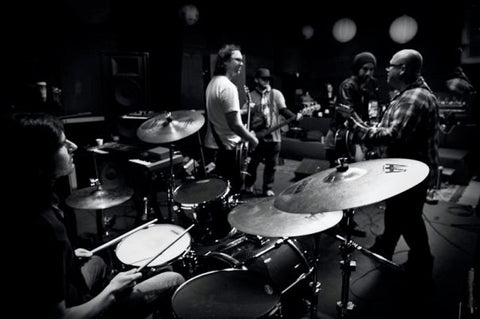
Jason:
Wow. Todd, thank you so much for joining us and giving us your knowledge and insight about what you do. A pleasure to talk with you and we hope to talk soon.
Todd:
Absolutely. Well, thanks so much. It was great to catch up with you and I hope I provided some enlightenment for anybody out there. And anybody listening; good luck. I will say this; just be persistent. Just get out there and don't let anybody tell you what to do, what not to do. And if there's one thing that keeps being proven over and over again is that as much as there's a model to the business, there isn't. It's always being reinvented every day. So what worked yesterday won't work tomorrow and what hasn't been thought of can definitely be possible tomorrow. So you just never know.
Jason:
Great Advice. Thanks, Todd.
Todd:
Thank you.
ToddDemma.com
TropeBand.com
